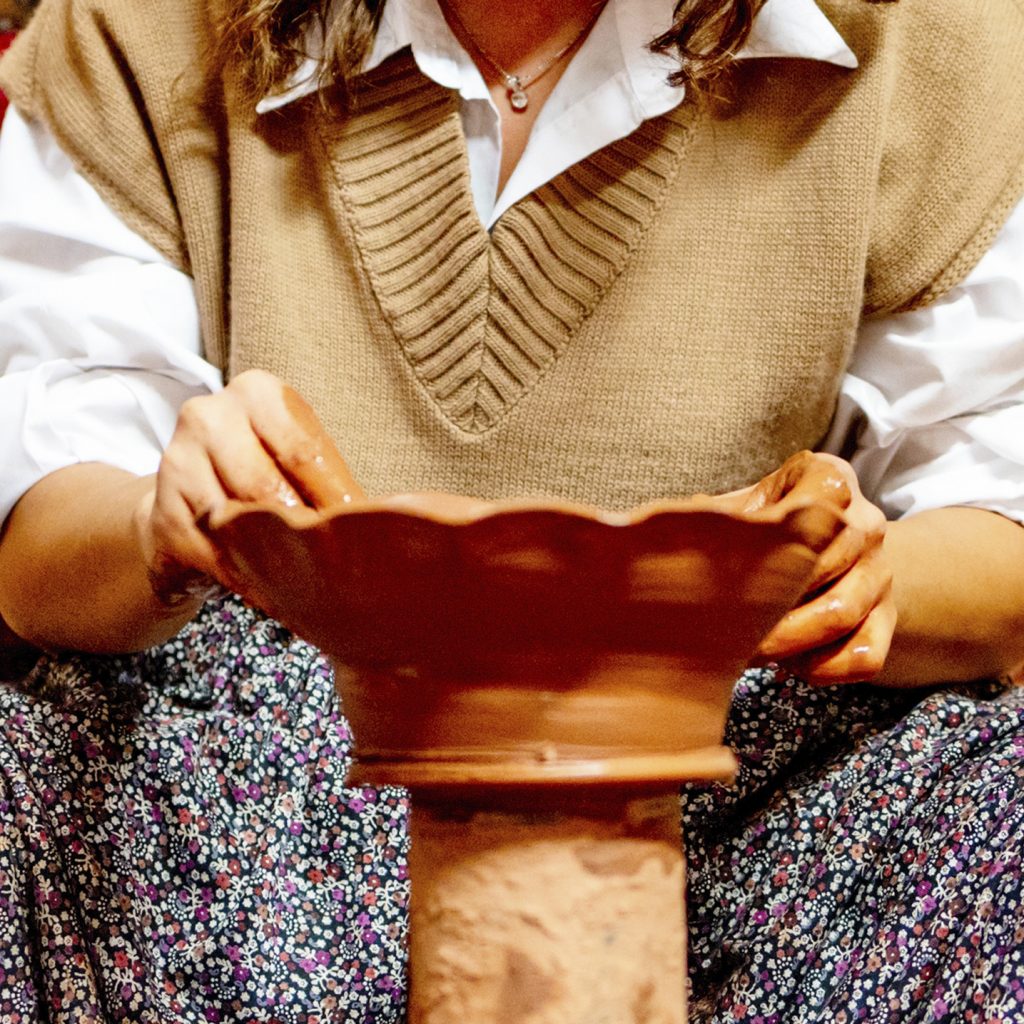Pottery is an art deeply rooted in Portuguese culture, becoming a symbol of Lusitanian identity and a fundamental element of national heritage.
There are several factors that make this activity play a crucial role in our culture. The abundance of raw materials has facilitated the development of this craft since ancient times, as Portugal is rich in clay deposits, one of the main components for pottery production. Additionally, the Mediterranean climate, with its hot and dry summers, also favors the drying of clay and the firing of pieces in wood-fired kilns.
Each of the cultures that influenced Portugal, such as the Roman and the Arab, has left its mark on Portuguese pottery, enriching it with new techniques and styles. Portugal’s maritime connections during the 15th and 16th centuries allowed for the exchange of knowledge and techniques with other cultures, contributing to the evolution of Portuguese ceramics.
This practice was driven by the production of pottery pieces with religious themes, such as the azulejos that adorn churches and convents, as well as by economic factors, since pottery, being an important economic activity, generated jobs and income for various regions of the country. However, Portuguese pottery is not limited to decoration; it is also used in the production of everyday objects, such as plates, jugs, and vases, combining the aesthetic beauty of each piece with its functionality.
Portuguese pottery thus manifests a great diversity of styles, from traditional azulejos to more contemporary pieces, reflecting the cultural richness of the country and the ability of artisans to adapt to different eras and trends.

